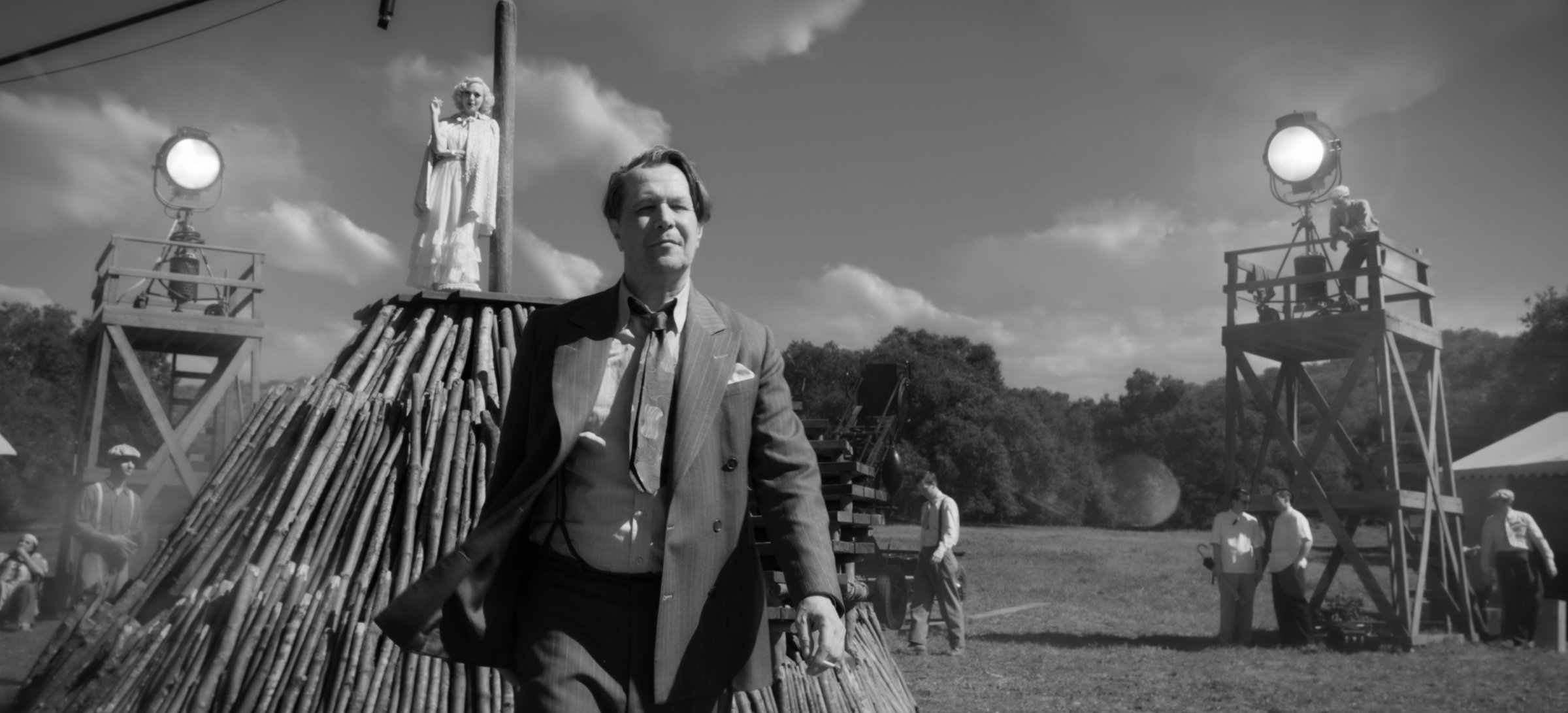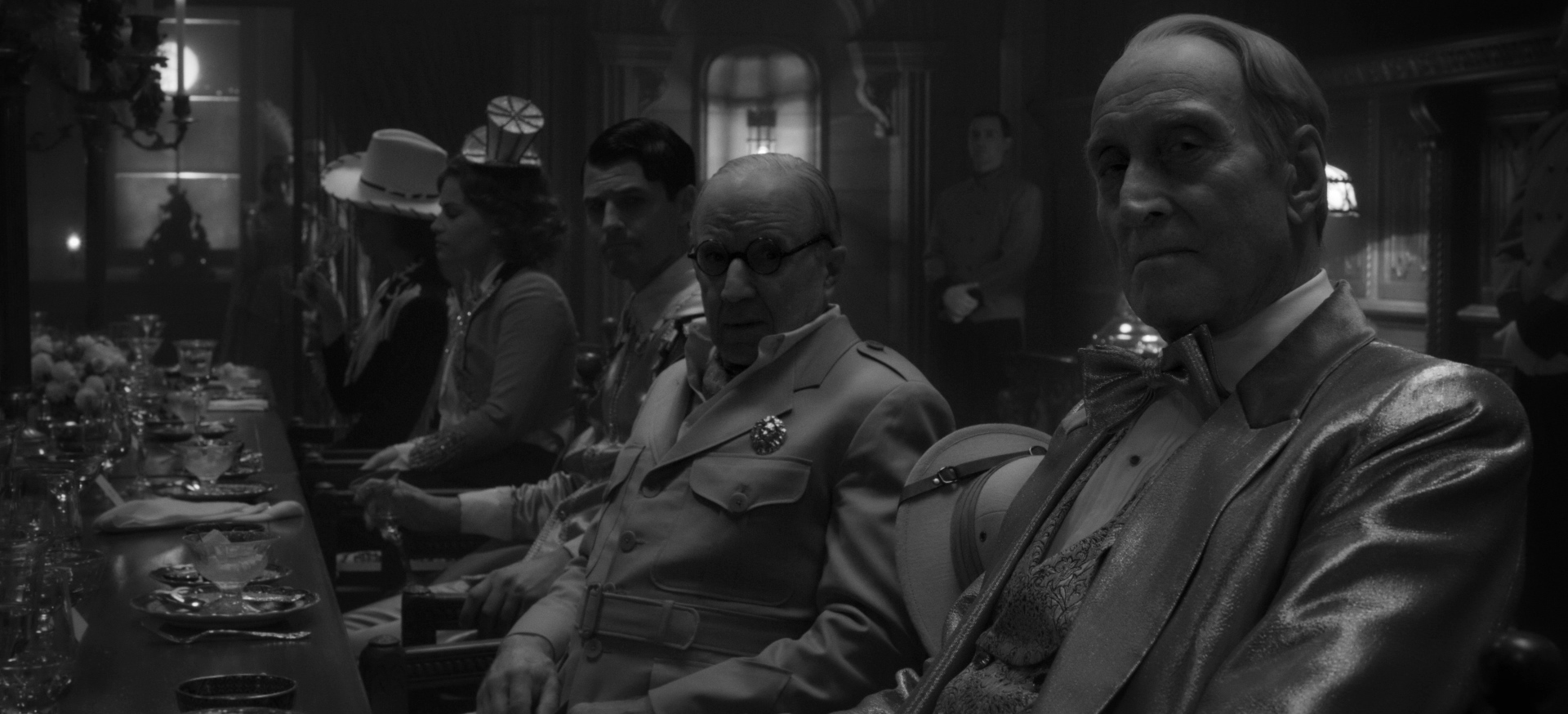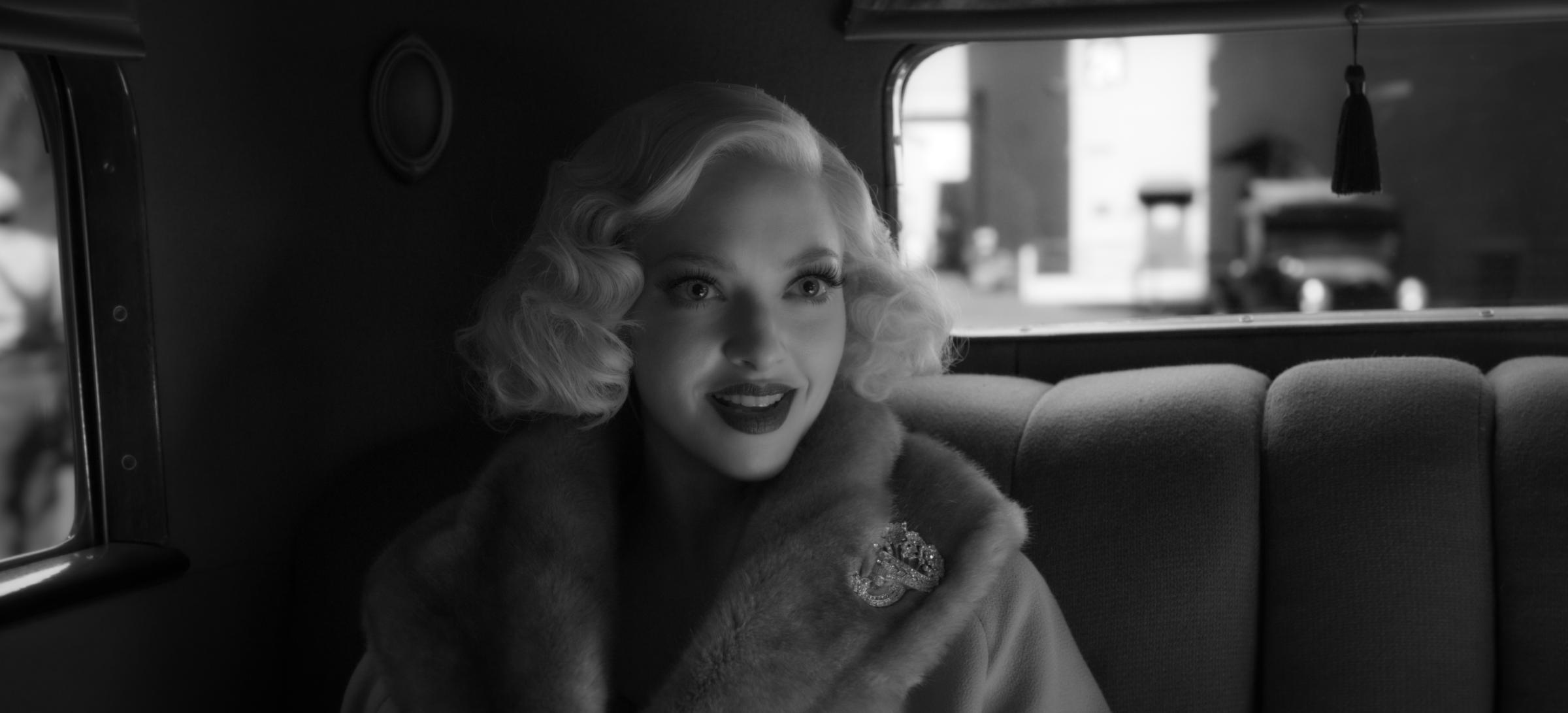
The legend of Orson Welles is a folk song with many stanzas and no end. He was a genius and a tyrant, a young rogue who either maximized or squandered his talent depending on whom you talk to, an imperious figure who, in his last years, gained too much weight and had to peddle wine to make some dough. Welles and the movie that made him, 1941’s Citizen Kane, are the stuff of lore. But Kane wouldn’t be Kane without Herman J. Mankiewicz, the man who co-wrote—or possibly even just wrote—its script, almost without getting credit. A great wit, raconteur and heavy drinker, Mankiewicz deserves his own wry, sardonic ballad, served with a double shot—if only more people actually remembered, or cared, who he was.
David Fincher cares, and with Mank he’s made a movie that revels in an era when journalists, novelists and playwrights flocked to Hollywood to make big money, sometimes screwing up their lives even in the face of good fortune. Mank is a clever and entertaining feat of old-Hollywood hagiography, rendered in pearlescent black-and-white that mimics the look of films from Mankiewicz’s own lost era—a detail that’s especially poignant since most people will end up watching Mank on comparatively small screens, at home. (It will release in select theaters in November before hitting Netflix Dec. 4.)
But the story Fincher tells here—in a picture that revels in both beauty and ruin more than any other he’s made, from Se7en to The Social Network—is intimate enough to resonate even on that smaller canvas. It’s about carving out a grand piece of work that nearly kills you, about betraying people you care about for the sake of art, about the degree to which the people holding the purse strings also hold the power. And it is, above all, a movie made with love, and not just for the long-vanished early days of a flickering art form: the screenplay was written by Jack Fincher, a journalist and the director’s father, who died in 2003. Fincher has been wanting to make this movie for years, and although it’s based on real events, there’s an aura of ghostly dreaminess about it too, as if Fincher were trying not to re-create the past but to communicate with it.
Gary Oldman, pale, puffy and whiskery, plays Mank, a longtime studio screenwriter and producer and former theater critic who’s fallen on hard times—and who, as the movie opens, has suffered a car accident that puts him in a cast, rendering him nearly immobile. He can still write, though, and luckily, he’s been hired by Welles (played by English actor Tom Burke, and seen only briefly) to come up with a screenplay. RKO Pictures has given the brash young director carte blanche to make any movie he wants, with any collaborator, and Mank is his guy. Welles arranges for the sozzled genius to be wheeled off to a remote ranch in Victorville, Calif., not just to allow him to recover from his smashup, but also to keep him from drinking—for the time being, at least.
With the exception of booze, Mank has everything he needs to get to work. Welles has arranged a pretty English secretary adept at dictation (she’s played by Lily Collins, who bears a shimmering resemblance to 1940s star Jennifer Jones), and has installed a persnickety babysitter in the form of John Houseman, Welles’s loyal theater compatriot and a producer on the then-nascent film (he’s played by Sam Troughton). And so Mank starts writing a dense and complex story that’s something like Mank itself, an odyssey that weaves from the present to the recent and not-so-recent past, in decidedly nonlinear fashion.

Fincher traces Mank’s tenure as an unruly but brilliant writer at Paramount, his encounters with figures like bullish studio boss Louis B. Mayer and his more principled right-hand man Irving Thalberg (Arliss Howard and Ferdinand Kingsley) and, most significantly, the time he spent earlier in the 1930s socializing with newspaper mogul William Randolph Hearst (Charles Dance) and his mistress, actor Marion Davies (Amanda Seyfried), at the Hearst Castle in San Simeon. Hearst would become, of course, the inspiration for Charles Foster Kane, and Mank outlines the complex and limited minuet of their friendship. Writers often mine real life for material, which means betrayal, though as Mank suggests, it’s sometimes hard to know who betrayed whom first.
Fincher shows us champagne-fueled parties at San Simeon, where, when the conversation turns to world affairs, Mank and Davies are the only ones clear on the potential danger of the Hitler regime. He also captures the warm, platonic camaraderie between the writer and the star, a gifted performer whose career was more hindered than helped by her rich, famous paramour. (Seyfried is marvelous here—there’s always just a hint of sadness behind her resplendent smile, as if she knows exactly what Davies’ life choices cost her.) At one point Mank and Davies sneak away from one of those aforementioned parties to talk in the castle garden, a rich man’s zoo populated by monkeys and pachyderms. As they chat and laugh in the moonlight, the silhouettes of elephants loom behind them like silent chaperones, keeping an eye out for any funny business (though there isn’t any).

Mank is an ambitious picture constructed from multiple shifting parts: one subplot involving novelist and liberal activist Upton Sinclair’s failed bid for governor of California in 1934—which was thwarted, at least in part, by a reel of fake news put out by Mayer—becomes a kind of somber watercolor wash over the whole movie, and an echo of our own time. Mank had everything invested in being the cleverest person on the page and in the room—he was, whether credited or not, the nimble mastermind behind early Paramount delights like the Marx Brothers’ Duck Soup and the Jean Harlow stunner Dinner at Eight—but he learns the hard way that words have power far beyond their entertainment value. And it’s at least a minor stroke of genius that Fincher cast Bill Nye, AKA Bill Nye, the Science Guy, as Sinclair—he’s visible only from afar, in a brief scene, but his mere presence is a nod to the supremacy of facts over dangerous fictions.
For all its intelligence, Mank isn’t anything close to a masterpiece; it’s more a pleasurable feat of derring-do, a movie made with care and cunning and peopled by actors who know exactly what they’re doing. Oldman makes a terrific Mankiewicz, sizing up the world around him as if it were all a comic mirage and he were the only real thing in it. (He was devoted, too, to his wife, Sara—played here by Tuppence Middleton—who deftly handled many thankless tasks, not least among them undressing the drunken Mank for bed.) But Mank’s moments of reckoning are searing: even if he’s one of those truly tragic alcoholics who are more productive and sharper when inebriated, he also knows what his behavior costs him in dignity. And when he finally finishes that script—the title typed across the front is simply American—we see in his eyes what parts of his soul he had to sell for it. Mankiewicz almost didn’t get credit for writing Citizen Kane; he had to fight for it, and in the end, he shared that credit—and the Oscar—with Welles. But as one of Hollywood’s great wags, Mankiewicz deserves an anthem of his own, and if Mank is the only one he ever gets, it’s not too shabby. The history of movies, like history overall, so often works its way out from the edges.
More Must-Reads from TIME
- Cybersecurity Experts Are Sounding the Alarm on DOGE
- Meet the 2025 Women of the Year
- The Harsh Truth About Disability Inclusion
- Why Do More Young Adults Have Cancer?
- Colman Domingo Leads With Radical Love
- How to Get Better at Doing Things Alone
- Michelle Zauner Stares Down the Darkness
Contact us at letters@time.com